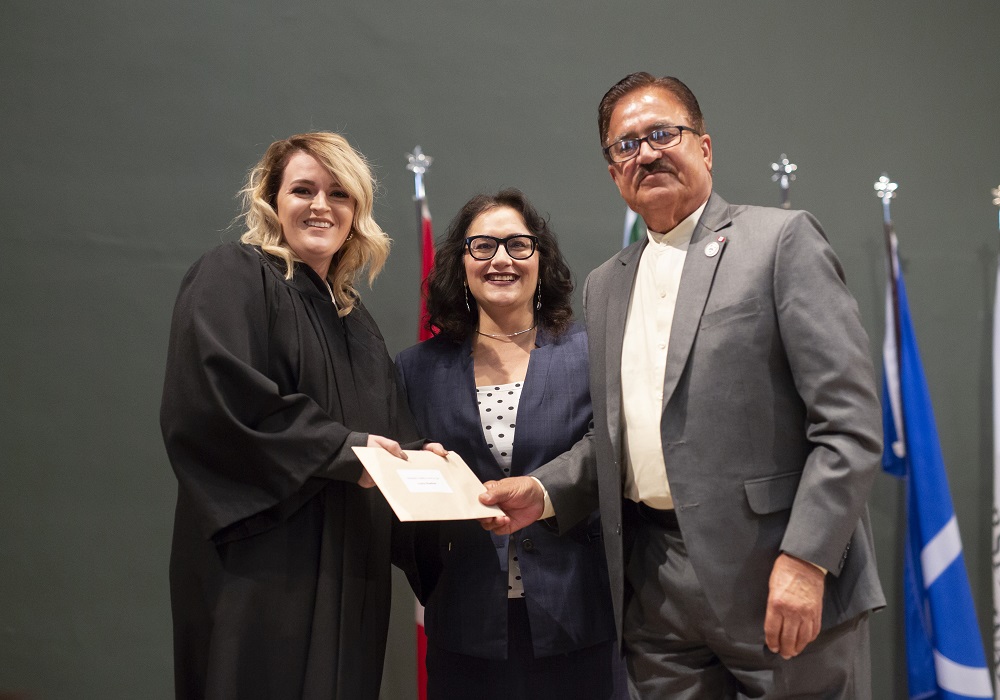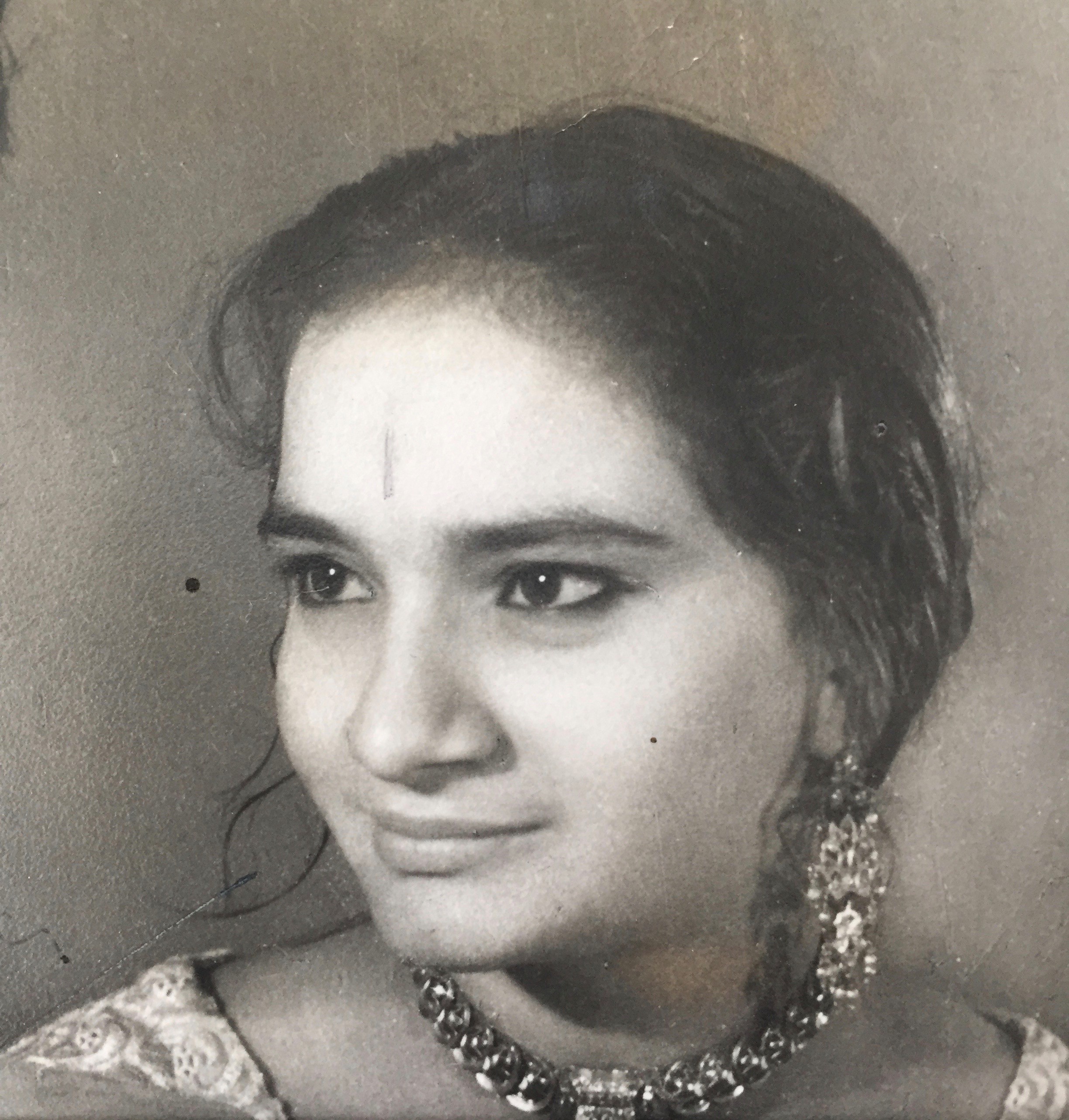
New award celebrates a mother’s legacy
The University of Saskatchewan holds a special place in Ena Chadha’s heart. It was where she received her law degree, it was where she met her husband, and it was where she began to deeply explore the vast areas of human rights and constitutional law.
By Sarah Trefiak
Chadha received her LLB from the College of Law in 1992 and was called to the Ontario Bar in 1994. She now lives in Ontario and is a human rights lawyer, educator and mediator and is passionate about working with leaders in the areas of conflict resolution and human rights.
Following the death of her mother Mohinder, who passed away from cardiac arrest due to blood poisoning in 2017, Chadha and her family decided to honour her mother by establishing an award at the College of Law. The award recognizes and rewards the volunteerism of a female Indigenous student who has successfully completed the Native Law Centre Summer Program and has been accepted into the USask JD program.
Chadha remembers her mother as caring, loyal, supportive and cheerful.
“She spoke her mind, stood up for her beliefs, was extremely hard-working and single-handedly prepared delicious meals for crowds of newcomers to Canada,” Chadha recalled. “It’s not an embellishment to say that my parents’ home was a port of entry for thousands of people. I never knew who my mom was cooking for until I dished up my plate and met the person.”
Aside from shepherding immigrants into Canadian life, Mohinder also liked knitting booties for elderly folks in nursing homes, and was a founding member of the Indo-Canadian community in Brampton, Ont. She was very proud of the fact that she was born in 1947, the year of India’s independence from Britain’s colonial rule.
“As immigrants that came from a country that had experienced British colonization, we grew up being very sensitive to the types of issues Indigenous peoples in Canada were experiencing and we had a heightened awareness that as first-generation newcomers to this country, we were on other peoples’ land,” Chadha said.
Mohinder and her husband Rajinder raised their daughters, Ena and Meena, to understand about colonialism, oppression and the power of law to change people’s destiny. And that, said Chadha, is what led her to a career as a human rights lawyer and her sister to become a social worker.
“My family has a deeply held belief that everyone has a role to be servicing their community,” Chadha said. “There was never anything you could do better than doing hard work. There was no way that if you were working in service of somebody that you should do anything less than give it your all. And I think I saw that through my parents’ marriage and through their lives.”
As she reflected on it, Chadha realized that the work ethic her mother embodied was the same work ethic she sees in the people of Saskatchewan.
“One thing we always say about Saskatchewan people is that they are so darn hard-working. It’s not just a stereotype, it really is in their spirit and they embody a work ethic that I feel is unparalleled sometimes. And when you ask me what my mom taught me about doing human rights law and equality rights law, it was that it takes a lot of hard work,” she said.
Initially Chadha was attracted to studying at USask because of the strong constitutional faculty, but she quickly realized the importance of the Wiyasiwewin Mikiwahp Native Law Centre and became interested in learning more about Indigenous peoples and human rights.
“I think I was really lucky that before Truth and Reconciliation or Indigenous self-government issues were even on the radar of mainstream Canadian society, it was something that my father was talking about to us around the kitchen table,” she continued. “He was very much aware of the systemic discrimination experienced by Indigenous people.”
Although she was never a participant of the Native Law Centre Summer Program, the centre and the college’s commitment to various Indigenous-focused initiatives were the reasons her family chose to establish an award in her mother’s name at USask.
“We have ties to a lot of other universities, but USask felt right and the Native Law Centre (NLC) was the big reason. We believe in the principles and the mandate of the Centre and that’s what we wanted to support. Hopefully by doing so, students will see what they did by going through the NLC is an important thing and they will eventually pay back to the NLC themselves.”
“Law is so foreign for everybody and in promoting access to justice really you need people from your own community,” she added. “I know that as a South-Asian lawyer I have people who just want a lawyer who is racialized and so I know how incredibly important it is to have more Indigenous lawyers in our country.”
Chadha believes that if her mother were alive, she would give this advice to current students: “Work hard. You will feel inalienable dignity just from being who you are, working hard and committing to community service.”

